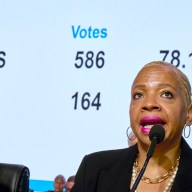 Bordoff hopes that a multi-disciplinary approach to energy policy will make change easier.
Bordoff hopes that a multi-disciplinary approach to energy policy will make change easier.
After four years at the White House, serving as a special assistant to President Barack Obama on climate change and energy policy, Jason Bordoff has decided to dodge the burnout of the political machine and lead Columbia University in rethinking energy policy. The Center on Global Energy Policy launched this month, so we asked Bordoff about his plans.
What is the larger goal of the center?
When I was in my job in Washington, there were policy issues that would hit your desk that you had to figure out by the end of the day. You didn’t have time to really do deep analysis. You’d see some study funded by one industry, one study by another industry. We hope to be an objective, trusted source of analysis to help people understand.
You say the center is going to take a multi-disciplinary approach. What do you mean by that?
What makes energy so interesting to me is that you have to combine economics and environment, national security and science. Part of what’s great about Columbia is being able to reach out to economics, science and global centers around the world that will bring people into the center. We plan to commission work from experts around the world on various topics. It’s a local issue and a global security issue.
What will students gain from the center?
The center will help educate and engage students by allowing them to produce research, work with some of the fellows we bring in and develop papers. I think it’s a good way for students to work on real, tangible issues.
Hydraulic fracturing is a huge part of energy policy now. How will you address it?
It’s not going to be about whether fracking is good or bad — it’s about helping people understand how the world is changing and what that means. There are significant, important geopolitical implications to energy policy. We will try to be very balanced and explain what is happening, advise on policy and see how the world of energy policy can match the rapid changes in the global energy landscape.
How will this research be used?
Sometimes academic papers sit on the shelf and they’re rigorous and analytic but not as useful. Policy workers need useful research so they can read things quickly and really tackle how you fix energy problems.
















